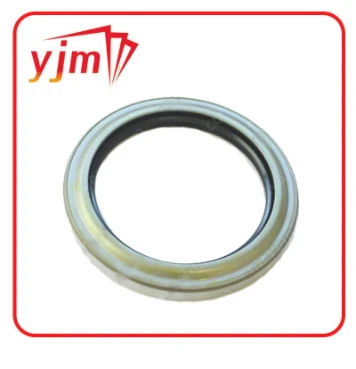lt1 oil filter adapter gasket


Causes Behind Oil Filter Adapter Gasket Leaks Wear and Tear Like many automotive parts, oil filter adapter gaskets can suffer from wear and tear due to constant exposure to heat and pressure. Improper Installation An improperly installed gasket can lead to uneven sealing surfaces, causing premature failure. Material Degradation Gaskets constructed from inferior materials are susceptible to faster degradation and are more likely to develop leaks. Excessive Pressure Engines regularly subjected to high stresses can exacerbate gasket deformation, resulting in leaks over time. Preventive Measures and Solutions Regular Inspections Regularly scheduled maintenance checks are crucial. During these sessions, inspecting the integrity of the oil filter adapter gasket can help in preemptively identifying potential issues. Quality Gasket Replacement If replacement is necessary, opting for high-quality gaskets ensures better longevity and performance. Trusted brands that meet OEM specifications should always be prioritized. Professional Installation While some vehicle enthusiasts may opt for a DIY approach, professional installation guarantees correct fitment and adherence to torque specifications. Use of Premium Oils High-quality engine oils can aid in maintaining gasket integrity and overall engine health. Temperature Management Ensuring optimal engine temperature can significantly reduce undue stress on gasket materials. In the realm of vehicle maintenance, oil filter adapter gasket leaks, though common, can be effectively managed through a combination of vigilance, quality components, and professional expertise. By adhering to these best practices, vehicle owners can maintain efficient vehicle operation, enhance engine life, and avert potential mechanical failures. As a cornerstone of engine maintenance, understanding and addressing oil filter adapter gasket leaks is fundamental to sustaining optimal vehicle performance.
-
Simplifying Oil Changes: A Comprehensive Guide to Oil Drain Plugs and Their Variants
News Aug.04,2025
-
Mastering Oil Drain Maintenance: Solutions for Stripped, Worn, and Upgraded Oil Plugs
News Aug.04,2025
-
Fixing Oil Pan Plug Issues: Leaks, Stripped Nuts, and the Right Replacement Solutions
News Aug.04,2025
-
Everything You Need to Know About Oil Drain Plugs: Sizes, Fixes, and Upgrades
News Aug.04,2025
-
Choosing the Right Oil Drain Plug: A Guide to Sizes, Materials, and Drain Innovations
News Aug.04,2025
-
A Complete Guide to Automotive Drain Plugs: Types, Problems, and Innovative Solutions
News Aug.04,2025
-
The Ultimate Guide to Car Repair Kits: Tools and Essentials Every Driver Should Own
News Aug.01,2025
Products categories















